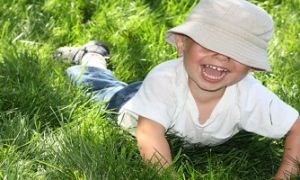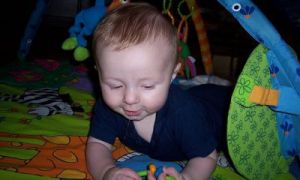Fine Motor involves the development of the small muscles of the body. The development of small muscles enables infants to carry out actions like grasping small objects. The fine motor skills developed from infancy continues throughout childhood in preparation of fine motor tasks such as writing.
Fine Motor Development Milestones
From 0 to 3 months
Infants begin exploring their environment by using their sight. Infants learn to co-ordinate their hand and eye movements so that they can begin manipulating toys, objects and begin using their hands as well.
Milestones Achieved
- begins to open and close hands
- brings two hands together to grasp objects
- starts reaching to swipe at dangling objects
- able to grasp object put into hands
From 3 to 6 months
During this stage, infants will begin to “foot play'. When an infant becomes excited they will begin kicking at random. An infant is also most likely to catch hold of one foot and put it in their mouth.
Milestones Achieved
- grasps rattles and objects with whole palm
- begins to transfer an object from one hand to another
- starts reaching for objects
- begins to hold onto an object
- places objects to mouth once learnt to grasp objects
- starts waving hands and feet excitedly
- reaches for and grasp objects, using one hand to grasp
- plays with feet and toes
From 6 to 12 months
There are so many things for an infant to discover and during this stage. It’s all about exploration through looking and touching. An infant will spend most of their time watching the world around them, taking in information, getting directly involved and often combining both touch and sight.
Milestones Achieved
- successfully reach out and grasp toy
- transfers objects from hand to hand
- picks up and pokes small objects with thumb and finger
- picks up and throws small objects
- grasps spoon in palm, but poor aim of food to mouth
- uses hands to feed self
- uses raking grasp
- uses pincer grasp (grasp using thumb and index finger)
- bangs two one-inch cubes together
- puts objects into container
- takes objects out of container
- pokes with index finger
- tries to imitate scribbling
Fine motor development supports other functions and actions such as grasping small objects, hand/eye co-ordination, actions like building with construction toys and the ability to hold a crayon.


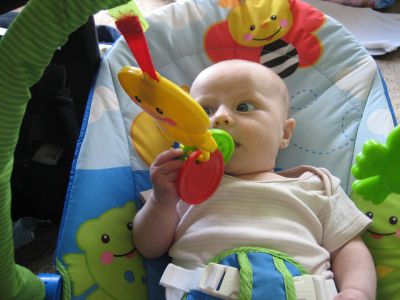

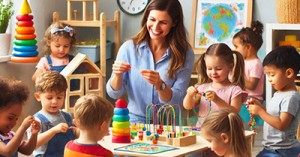
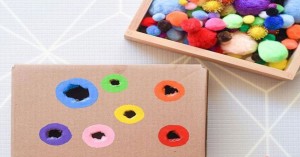
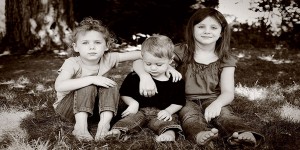
 Toddlers have a greater understanding of the world around them by this stage. Their cognitive development (also known as intellectual development and thinking skills) continues
Toddlers have a greater understanding of the world around them by this stage. Their cognitive development (also known as intellectual development and thinking skills) continues Infants begin to develop trust when parents begin to fulfil their needs. Such as changing an infant's nappy when needed, feeding on request and holding
Infants begin to develop trust when parents begin to fulfil their needs. Such as changing an infant's nappy when needed, feeding on request and holding Beginning at birth the construction of thought processes, such as memory, problem solving, exploration of objects etc, is an important part of an infant’s cognitive
Beginning at birth the construction of thought processes, such as memory, problem solving, exploration of objects etc, is an important part of an infant’s cognitive Toddlers want to do more on their own and do not like it when you begin to establish limits on their behaviour. Tantrums can become
Toddlers want to do more on their own and do not like it when you begin to establish limits on their behaviour. Tantrums can become Your preschooler is now able to focus their attention more accurately and is less influenced by distractions. The intensity of questions increase as your child
Your preschooler is now able to focus their attention more accurately and is less influenced by distractions. The intensity of questions increase as your child John Dewey is often seen as the proponent of learning by doing – rather than learning by passively receiving. He believed that each child was active,
John Dewey is often seen as the proponent of learning by doing – rather than learning by passively receiving. He believed that each child was active, Toddler advance and gains new skills in Gross Motor Development milestones achieved throughout earlier years. Co-ordination and challenges that could not be performed before such
Toddler advance and gains new skills in Gross Motor Development milestones achieved throughout earlier years. Co-ordination and challenges that could not be performed before such Erik Erikson developed a psychosocial theory to understand how we each develop our identities through eight stages of psychosocial development from infancy to adulthood. The
Erik Erikson developed a psychosocial theory to understand how we each develop our identities through eight stages of psychosocial development from infancy to adulthood. The At this point preschoolers begin to interact effectively with others. Play becomes more innovative and organized and “boyfriend” or “girlfriend” begins to emerge. Preschoolers have
At this point preschoolers begin to interact effectively with others. Play becomes more innovative and organized and “boyfriend” or “girlfriend” begins to emerge. Preschoolers have From now, babies begin to identify and respond to their own feelings, understanding other's feelings & needs and interact positively with others. A baby's social and
From now, babies begin to identify and respond to their own feelings, understanding other's feelings & needs and interact positively with others. A baby's social and